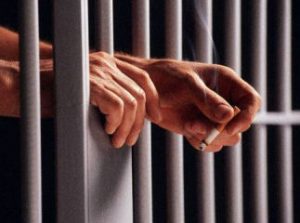Correction or In-Correction?
The correction system is among many systems in America that fall under some pretty heavy scrutiny. The correctional process, however, doesn’t begin in prison. It enters the game much earlier, and in less direct ways, affecting people’s likelihood or even ability to avoid breaking the law. The laws as they exist today are a different story all together, so whether or not people who end up in prison are there because of nature, nurture, culture, or poverty is up to each person to discern for themselves at this point; that’s another analysis for another day. For right now let’s look at the correctional process beginning with incarceration.
For the purpose of this discussion I’ll reference a case from Clayton, New Jersey from a few years back that stood out to me. It concerned a then 16-year-old boy who was sentenced to 17 years in prison for murdering a 12-year-old girl. The victim, Autumn Pasquale, had disappeared about a year prior after having gone out for a bike ride. When passing the home of Justin and Dante Robinson she was lured in by the two brothers and strangled. Two days later her body was found in a nearby dumpster. A guilty plea by Justin Robinson was initially the only thing to determine he was the primary attacker, until he admitted sole responsibility.
Needless to say this was tragic. But just look at the numbers involved. The kid was 16, and was 15 when he murdered this innocent girl for no discernible reason. He was sentenced to 17 years; his entire life up to that point plus another year. Recidivism when it exists is obviously a product of multiple influences, but what type of system can be constructed to rehabilitate someone who hasn’t even begun an adult life? Or someone who has been living an adult life for decades and is psychologically driven to crime? Every facility runs differently in certain aspects, but the type of hands-on work that someone with this gravity of a mental illness requires isn’t something that you generally receive in today’s prison system. The concept in itself is always going to seem shaky to law abiders; a criminal being grouped in with tons of other criminals and being expected to get their act together. But, aside from the general uncertainties, we have to consider cases wherein someone is being incarcerated for the majority of their lives. 15 years and up is a pretty long time for someone to be anywhere let alone in a containment facility where criminal behavior and gang activity that doesn’t even exist in its entirety in the outside world flourishes. It isn’t an uncommon conception that in order to survive in prison a lot of inmates join gangs and commit more crime while serving their sentences. Just watch any prison documentary, of which there are many, and you’ll be surprised as to how extensive the prison sub-culture can be.
It’s important to also look at the types of people incarcerated in America’s prisons today. A ridiculous number of these people are where they are because of non-violent drug offenses. Does it really make sense to include someone who sells or possesses illegal drugs with someone who murders children for no apparent reason? As I said earlier, the laws are what they are; the law in regards to controlled substances isn’t a subject I’m going to broach right now. The important point is that the incarceration rate in America is the highest in the world. If the goal of the system is to take in people who break the law and rehabilitate them so they can return to society and contribute it sure doesn’t sound like that system is working properly, does it? Not to mention the fact that prisons are privately owned, and there’s money to be made in having an over-crowded facility with a need for state funding. Everyone’s heard the dinner-table discussion about how our taxes pay for people on death row and whatnot. Does one ever really wonder how true that is, and how much money could be involved?
It’s a tough topic to discuss without branching off into legal and political debates, but headcounts don’t lie; we have way too many people locked up in this country. The US isn’t the third world. Even though in some ways our economy isn’t what it used to be there are still jobs and plenty of means to survive without ending up in prison. Again, it can be attributed to nature, nurture, culture, or poverty, but does the blame stop there? What about someone’s culture makes them think they’re entitled to more than what their willingness (or lack thereof) to work affords them? Whatever the cause for all of these factors something has got to change. Australia was established by the British as a penal colony, and it’s starting to look like America is becoming one as well.


